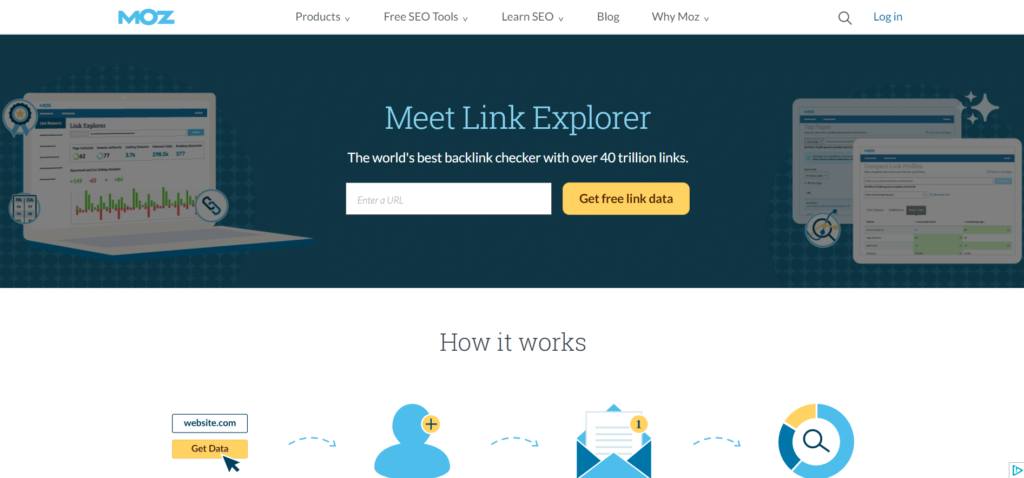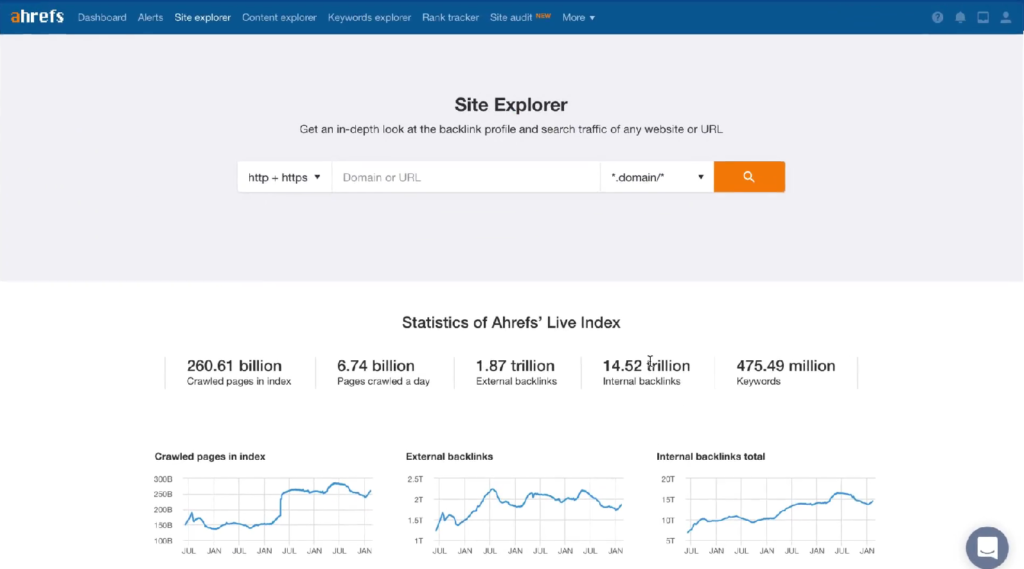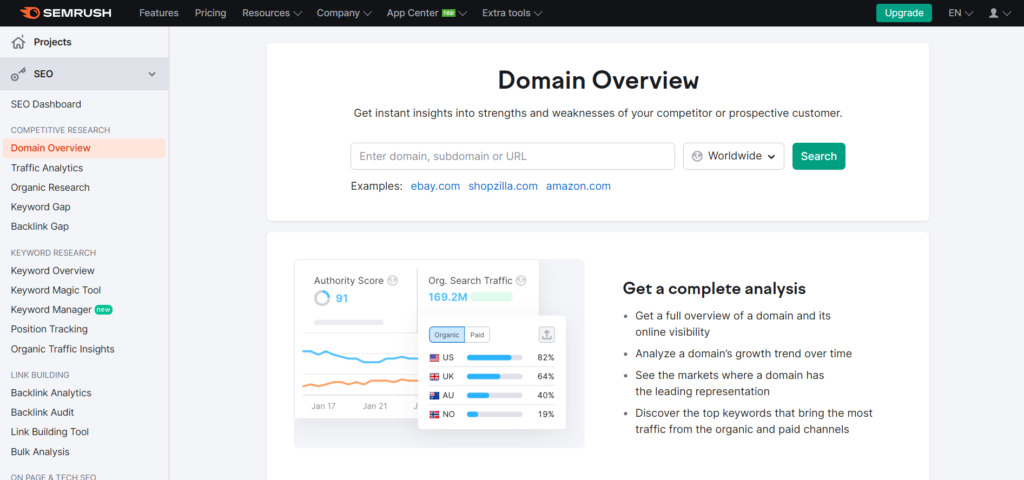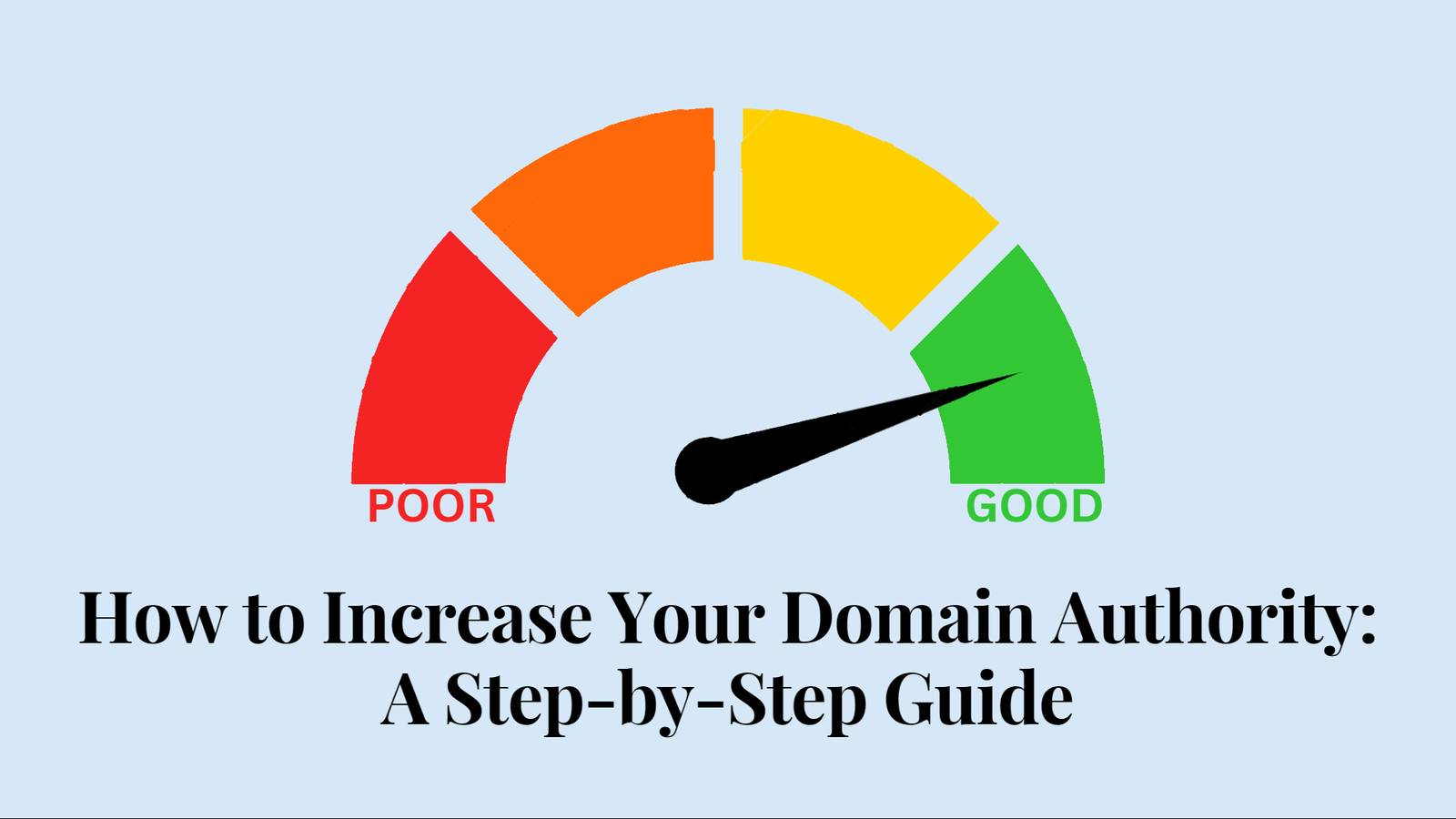Want your site to rank high on Google? Domain authority is a measure of how well a website is likely to rank in search results. While it’s not a direct ranking factor, improving your domain authority can help your SEO.
In this article, we’ll define domain authority, explain why it’s important for ranking your website, and show you how to boost it.
What is Domain Authority?
Moz developed Domain Authority, often abbreviated as DA, as a metric that predicts how well search engine result pages (SERPs) trust a website. It measures the level of trust on a scale from 1 to 100. A higher score in domain authority indicates that a website is more likely to rank well in search results.
Why is Domain Authority Important?
Domain Authority is essential because search engines consider it as a factor in determining a website’s credibility and relevance. While it is not a direct ranking factor used by search engines like Google, it is a trusted metric developed by Moz that indicates the trustworthiness, credibility, and authority of your website.
Here are some of the benefits of having a high domain authority:
Better search engine rankings
Websites with higher domain authority tend to rank higher in search results. This means that your website will be more visible to potential visitors, which can lead to increased traffic and conversions.
More backlinks
Websites with high domain authority are more likely to attract backlinks from other websites. Backlinks are a signal to search engines that your website is a valuable resource, which can help it rank higher in search results.
Increased credibility
A high domain authority can help to increase the credibility of your website. This is because it shows that other websites trust your content and find it valuable.
Improved SEO strategy
Improving your domain authority can be a part of your overall SEO strategy. By implementing effective SEO techniques, you can gradually enhance your website’s authority and improve its chances of ranking higher in search results.
(DA) Domain Authority vs (PA) Page Authority – What’s the Difference?
Domain authority (DA) and page authority (PA) are both metrics that measure the authority of a website or page. However, they measure different things.
- Domain authority is a measure of the overall authority of a website. It is calculated based on a number of factors, including the number of backlinks a website has, the quality of those backlinks, and the age of the website.
- Page authority is a measure of the authority of a specific page on a website. It is calculated based on a number of factors, including the number of backlinks to the page, the quality of those backlinks, and the authority of the website itself.
In general, a website with a high domain authority will have pages with high page authority. However, there are some cases where a page may have a higher page authority than the website it is on. This can happen if the page has a lot of high-quality backlinks that are not pointing to the website as a whole.
Domain authority and page authority are both important metrics for SEO. Domain authority is generally considered to be more important because it measures the overall authority of a website. Page authority is still important because it can help you identify pages on your website that have the potential to rank well in search results.
What Is a Good Domain Authority Score?
A good domain authority (DA) score depends on the industry and the competition. Here is a general guideline for what is considered a good DA score in different industries:
| Industry | Good DA Score | Excellent DA Score |
|---|---|---|
| General | 50 or above | 70 or above |
| Competitive | 60 or above | 80 or above |
| Niche | 30 or above | 40 or above |
It is important to note that these are just general guidelines. The specific DA score that is considered good or excellent will vary depending on the specific industry and the level of competition.
For example, in a highly competitive industry like finance, a DA score of 80 or 90 may be necessary to rank well. However, in a less competitive industry like gardening, a DA score of 50 or 60 may be sufficient.
Ultimately, the best way to determine what is a good DA score for your website is to research your competitors and see what DA scores they have. You can also use a domain authority checker tool to see how your website’s DA score compares to others in your industry.
How is Domain Authority Calculated?
DA is calculated based on a number of factors, including:
- The number of backlinks a website has: Backlinks are links from other websites to your website. They are a strong signal to search engines that your website is authoritative.
- The quality of backlinks a website has: Not all backlinks are created equal. Backlinks from high-quality websites carry more weight than backlinks from low-quality websites.
- The age of a website: Older websites tend to have higher domain authority than newer websites.
- The content of a website: The quality and relevance of the content on a website can also affect its domain authority.
Best Domain Authority Checker Tools
There are a number of ways to measure domain authority. Some of the most popular methods include:
1. Moz’s Link Explorer
Moz’s Domain Authority checker is one of the most popular tools for check domain authority free. It provides a DA score for any website.

2. Ahrefs Domain Authority
Ahrefs’ Domain Rating checker is another popular tool for checking domain authority. It is a paid tool, but it provides more detailed information about a website’s backlink profile than Moz’s tool.

3. SEMrush Domain Overview
Semrush’s domain authority checker is a tool that allows you to see the domain authority (DA) score of any website. It is measured on a scale from 1 to 100, with a higher score indicating that a website is more likely to rank well.
Semrush’s domain authority checker is a valuable tool for SEO professionals and website owners. It can help you to track the progress of your SEO efforts and identify competitors websites.

4. Majestic Trust Flow and Citation Flow
Majestic’s Trust Flow and Citation Flow metrics can be used to measure the quality and quantity of backlinks pointing to a website. These metrics are not the same as domain authority, but they can be used to get a good idea of how well a website is trusted by search engines.

It is important to note that no single metric can perfectly measure domain authority. However, by using a combination of these metrics, you can get a good idea of how well a website is trusted by search engines.
How to Increase Domain Authority?
There are a number of things you can do to increase your domain authority. Here are a few tips:
Create high-quality content
The most important factor in increasing your domain authority is to create high-quality content that is relevant to your target audience. This content should be well-written, informative, and engaging.
Build backlinks from high-quality websites
Backlinks are links from other websites to your website. They are a strong signal to search engines that your website is authoritative. You can build backlinks by guest blogging, commenting on other blogs, and submitting your site to directories.
Optimize your website for SEO
You can optimize your website for search engines by using relevant keywords and phrases throughout your website content. You can also use title tags and meta descriptions to help search engines understand what your website is about.
Avoid bad links
Bad links are links from low-quality websites. They can harm your domain authority, so it is important to avoid them. You can use a tool like Google Search Console to check your website for bad links.
It is important to note that increasing domain authority takes time and effort. There is no quick fix for increasing domain authority. However, if you follow the tips above, you can gradually improve your domain authority over time.
Here are some additional tips for increasing domain authority:
Focus on long-tail keywords: Long-tail keywords are more specific than short-tail keywords. They are also less competitive, which means that it is easier to rank for them.
Use social media to promote your content: Social media is a great way to promote your content and drive traffic to your website. When you share your content on social media, be sure to use relevant keywords and hashtags.
Build relationships with other bloggers and website owners: Building relationships with other bloggers and website owners can help you to get backlinks to your website. When you build relationships with other bloggers and website owners, be sure to share their content on your website and vice versa.
Use tools to track your progress: There are a number of tools that you can use to track your progress in increasing your domain authority. These tools can help you to see which factors are affecting your domain authority and which areas you need to improve.
Increasing domain authority takes time and effort, but it is worth it. A high domain authority can help you to rank higher in search results, attract more traffic to your website, and boost your website’s credibility.
Conclusion
As we all know that Increasing Domain Authority takes time, effort, and strategy. You need quality content, strong backlinks, SEO optimization, and link management. Follow these steps to enhance your website’s DA, gain search engine visibility, and achieve greater success online. Be patient and persistent, and your DA will rise over time.

